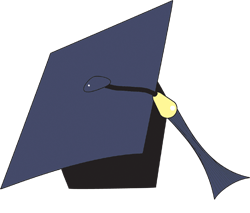
 Training Graduate Students to Teach: Berkeley’s Teaching at the University Course
Training Graduate Students to Teach: Berkeley’s Teaching at the University Course
Hayley Rucker, University of California, Berkeley
Lynsay Brooke Skiba, University of California, Berkeley
Laura M. Westhoff, University of Missouri–St. Louis
Session Abstract
This session will examine the revision of the history pedagogy course for doctoral students at the University of California, Berkeley, and foster a discussion for students, faculty, and program administrators who are interested in enhancing students’ preparation for the classroom. For history graduate students facing undergraduate courses for the first time as instructors, the challenges of teaching may seem unfamiliar and isolating. Many get frustrated when students do not understand what history is or what they are trying to teach. But teaching challenges, like the research challenges elsewhere in the graduate curriculum, can be eased by evidence-based inquiry and shared, scholarly conversations. Early career instructors—whether they are planning a discussion section or trying to figure out where a writing assignment went awry—can draw insights from a rich body of research on how people learn to think historically.
In November 2012, the AHA received a grant from the Teagle Foundation for a project that explores ways to better integrate the scholarship of teaching and learning into the training of history doctoral students. With the help of this grant, the AHA sponsored a team of historians and a cognitive psychologist to work with members of the department in Berkeley on a fresh approach to the 300-level course, Teaching History at the University.
Berkeley faculty member Daniel Sargent volunteered to work with the AHA’s advisors on a redesign of the course for offering in fall 2013. Sargent and the graduate student assistant, Lynsay Skiba, spent the summer revising this course, which is a state requirement for all first-time teaching assistants. Drawing on insights from the research on teaching and learning in history specifically, Sargent and Skiba built a syllabus that takes students through a series of experiential assignments and activities. Beginning graduate student instructors practice the key skills of listening closely for evidence of how their undergraduates are thinking, while carefully observing themselves and their peers interacting with undergraduates in order to see what is being communicated.
Students who took the course in the fall semester will reflect on their own learning and experiences. Other presenters will discuss the questions such a course poses for students and faculty alike, and they will place the Berkeley project into the broader contexts of teacher preparation, graduate-student professionalization, and the role of pedagogy among the range of issues that history graduate programs face.
